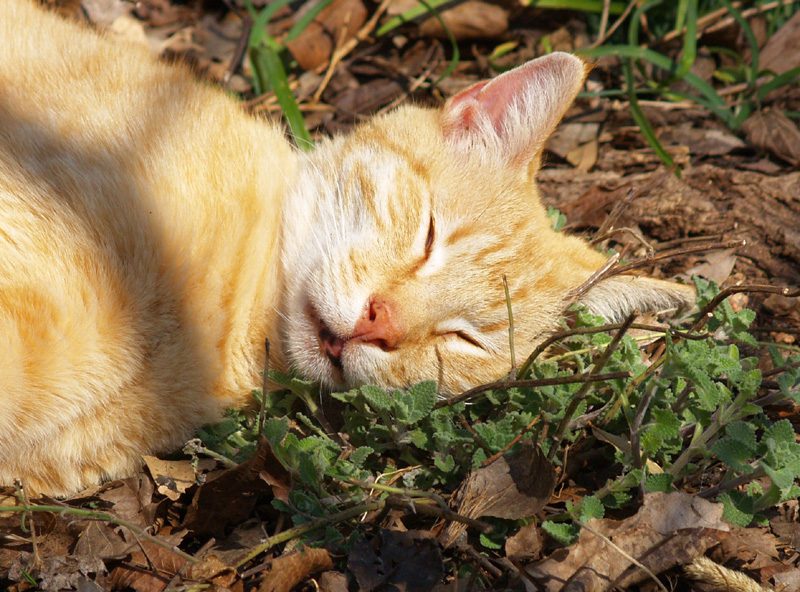What you’ve always wanted (and need) to know about catnip!
- Catnip is a perennial herb that is part of the mint family. It was originally found in Europe and Asia but has long since established itself in the U.S., Canada and Mexico.
Why do our cats find it so irresistible?
- Scientists are unsure of exactly what happens in a cat’s brain when they sniff catnip but what we do know is that upon sniffing catnip a chemical message is sent to the cat’s brain, inducing euphoria.
Not every cat is susceptible to the stimulating effects of catnip. A response to catnip is an inherited trait and cats that don’t carry the trait are immune to its effects.
- Approximately one-third to one-half of cats have the trait and go crazy for the herb.
Cats will typically smell the herb but this can lead to licking and then eating.
- Catnip is not addictive but if given too frequently it can cause a cat to lose its sensitivity to it– moderation is key!
- There is no known toxic dose of catnip but if a cat eats too much of it (as with any other plant) this can lead to vomiting and diarrhea.
Health benefits?
- Catnip can provide cats with extra relaxation; it is occasionally used as a training tool or to decrease a stressful activity for your cat (like travel in a crate).
- It can also act as a stimulant and increase your cat’s activity level.
Adverse reactions?
- It can lead to hyper-activity and in a small number of cats this can increase the potential for aggression.
- As mentioned above, eating too much of the plant may cause vomiting or diarrhea.
A few more interesting facts about catnip:
- Catnip doesn’t only have a euphoric effect on domestic cats– big cats like lions and tigers are also susceptible!
- Be assured, if your dog gets into the catnip it won’t harm him.
- Studies have been done that show that catnip can lead to seizures in rats, so if your pet is prone to this malady it’s best not to give them this treat.
- Catnip is a uterine stimulant, so do not give it to a pregnant cat.
This information was acquired from the AVMA.org website in an interview with Dr. Gayle Sternefeld
Recent Posts
About Us
Ann Arbor Animal Hospital is a locally-owned animal hospital operating for over 90 years in Ann Arbor, MI.

